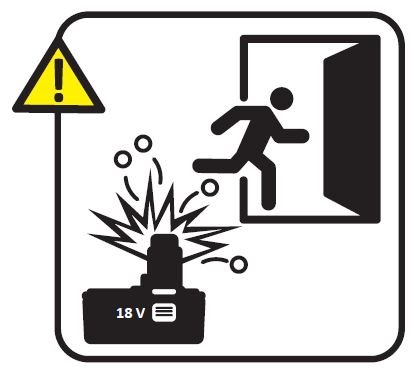Installed Lithium-ion Batteries
Typical uses of installed lithium-ion batteries

Download the PDF for installed lithium-ion battery safety flyer
If you’re thinking of switching your domestic, starter or power batteries to lithium-ion, here’s some tips The following advice is based upon guidance provided by industry experts.
Tips for Installing
Use a professional who installs to suitable industry standards
the installation of lithium-ion batteries and battery systems should only be carried out by competent persons, and to suitable industry standards (i.e. ISO 13297 and ISO 23625).

Install marine-suitable equipment only
Only choose lithium-ion batteries and battery system components specifically intended for marine installation. They are designed for use in the challenging marine environment.
Don’t mix and match battery types
Different battery types should not be connected in parallel or in series. The load characteristics and capabilities of lithium-ion batteries and lead-acid batteries, for example, are drastically different. Mixing can be hazardous.
Tell your insurer
If you have lithium-ion batteries and/or battery systems on your vessel, you must tell your insurer, or risk being left uninsured in the event of an incident.
Follow manufacturer’s instructions
- Your fitter must follow manufacturer’s installation instructions for lithium-ion battery system products, for example concerning the suitability and type of battery management systems and charge regulation equipment. They should also ensure any specifications for the securing, temperature control and venting of batteries are fully met.
- Boat owners must use lithium-ion batteries in step with the manufacturer’s instructions, and they will need to ensure the batteries are kept within the manufacturer’s stated safe operating limits, e.g. keeping batteries within any specified ranges for temperature, rate of charging or ‘state of charge’.

Stay safe charging lithium-ion batteries
Each installation needs a well-matched and robust battery management system and charge regulation equipment.
Only use manufacturer’s approved charging devices/equipment
Unless the equipment instructions and/or competent installer state that it is safe to do so, do not leave equipment on charge when you are asleep or away from the vessel.

Keep checking
Avoid any damage to your boat’s batteries and keep water and sunlight away from them. Routinely check their condition.
Remove damaged batteries immediately – Damaged lithium-ion batteries can overheat, emit dense explosive and poisonous vapour clouds, shoot out flames and explode.
If you spot any signs of damage on a lithium-ion battery, remove it from the boat and recycle it responsibly with a specialist contractor as soon as possible. Don’t dump it in household or general waste bins.
Be prepared, keep safe
Install & test smoke alarms and carbon monoxide alarms – Fit suitable, certified and working alarms.
Ensure any alarms can be heard throughout the boat.
Test them monthly. Replace batteries and alarms when they are expired.
Create a Safe-Escape Plan
Everyone aboard must know and understand how to act in case of an emergency.
Do not attempt to fight lithium-ion battery fires – get out, stay out
They can spread rapidly, and traditional fire extinguishers may not work.
Keep all escape routes clear at all times, as you may be further hampered by a dense toxic vapour cloud.

Never forget this ...
Get out and stay out - If a device or battery starts making loud popping, hissing or screaming sounds, or emits toxic vapour/smoke, or catches fire, raise the alarm, warn others, turn the motor off if you can without delaying your escape or creating sparks.
Once out stay out and call 999 (inland/in harbours) or ch16 (on coastal waters) for help immediately.
Keep well clear of the boat.
